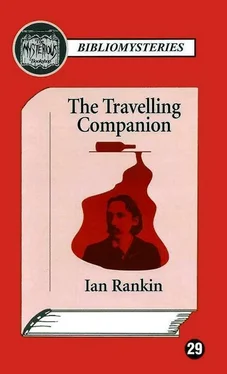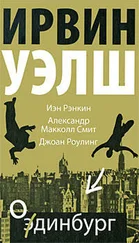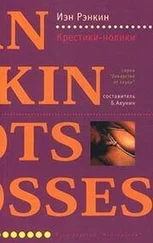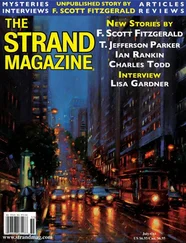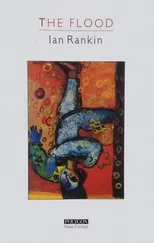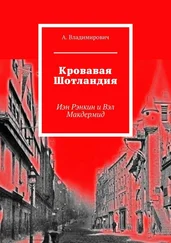Ian Rankin
The Travelling Companion
“My French isn’t very good,” I told him.
“The seller’s English. You’ll be fine.” Mr. Whitman thrust the postcard towards me again. He had insisted I call him George, but I couldn’t do that. He was my employer, sort of. Moreover, if the stories were to be believed, he was a descendant of Walt Whitman, and that mattered to me. I had graduated with First Class Honors from the University of Edinburgh that same summer. My focus had been on Scottish rather than American Literature, but still — Whitman was Whitman. And now my employer (of sorts) was asking me to do him a favor. How could I refuse?
I watched as my fingers plucked the postcard from his grip. It was one of the bookstore’s own promotional cards. On one side were drawings of Shakespeare and Rue De La Bucherie, on the other my handwritten destination.
“A five-minute walk,” Mr. Whitman assured me. His accent was an American drawl. He was tall, his silver hair swept back from his forehead, his eyes deep-set, cheekbones prominent. The first time we’d met, he had demanded a cigarette. On hearing that I didn’t smoke, he had shaken his head as if in general weariness at my generation. This meeting had taken place outside a nearby cous-cous restaurant, where I had been staring at the menu in the window, wondering if I dared go inside. Money wasn’t the main issue. I had been rehearsing my few French phrases and considering the possibility that the staff, seeing me for a lone traveler, might mug me for my pocketful of francs before selling the contents of my heavy rucksack at some street market in the vicinity.
“Passing through?” the stranger next to me had inquired, before demanding that I give him one of my “smokes.”
A little later, as we shared a table and the menu’s cheapest options, he had told me about his bookstore.
“I know it,” I’d stammered. “It’s rightly famous.”
He had offered a tired smile, and, when we’d filled our bellies, had produced an empty thermos flask, into which he poured the leftover food before screwing the lid back on.
“No point wasting it,” he had explained. “The store doesn’t pay, you know, but there’s the offer of a bed. A bed’s all you get.”
“I was going to look for a hotel.”
“You work the till for a few hours, and mop the floor at closing time. Rest of the day’s your own, and we do have some interesting books on the shelves...”
Which is how I came to work at Shakespeare and Company, 37 Rue De La Bucherie, Paris 5. On the postcard we boasted “the largest stock of antiquarian English books on the continent,” and added Henry Miller’s comment that we were “a wonderland of books.”
It wasn’t the original shop, of course — not that we trumpeted the fact. Sylvia Beach’s Shakespeare and Company had opened in the year 1919 on Rue Dupuytren, before moving to larger premises on Rue de l’Odeon. This was where Joyce, Pound and Hemingway could be found. Mr. Whitman had called his own bookstore Le Mistral, before renaming it in Beach’s honor — her own Shakespeare and Co. having closed for good during the German occupation of Paris. The new Shakespeare and Company had been a magnet for Beat writers in the 1950s, and writers (of a sort) still visited. I would lie on my hard narrow bed in a curtained-off alcove and listen as poems were workshopped by ex-pats whose names meant nothing to me. Contemporary writing was not my period, however, so I tried hard not to judge.
“You’re from Scotland, right?” Mr. Whitman had said to me one day.
“Edinburgh, specifically.”
“Walter Scott and Robbie Burns, eh?”
“And Robert Louis Stevenson.”
“Not forgetting that reprobate Trocchi...” He had chuckled to himself.
“Stevenson is my passion. I’m starting my PhD on him in the autumn.”
“Back into academe so soon?”
“I like it there.”
“I can’t imagine why.” And he had fixed me with one of his looks, before opening the till to examine the evening’s scant takings. It was August, and still hot outside. The tourists were sitting at café tables, fanning themselves with menus and ordering cold drinks. Only one or two people my own age were browsing the shelves of our airless shop. There was an original copy of Ulysses in the window, a siren to draw them inside. But this night it was proving ineffectual.
“Was Paris always your destination?” he asked, sliding the drawer closed again.
“I wanted to travel. Stevenson visited France several times.”
“Is that the subject of your PhD?”
“I’m looking at how his health may have affected his writing.”
“Sounds fascinating. But it’s hardly living, is it?” I watched him as he turned away and headed for the stairs. Three more hours and I could lock up before heading for bed and the various biting insects who seemed to feast nightly on my ankles and the backs of my knees.
I had sent postcards — Shakespeare and Company postcards — to friends and family, making sure to add a few centimes to the till in payment. I didn’t mention the bites, but did make sure that my ongoing adventure sounded as exotic as possible. I had actually sent a first postcard home soon after disembarking from the overnight bus at London’s Victoria Coach Station. Another had been purchased and sent from the ferry terminal in Dover. I knew my parents would prefer written communication to an expensive phone call. My father was a Church of Scotland minister, my mother an invaluable member of our local community. I was a rarity of sorts in having stayed at home during the four years of my undergraduate degree. My parents had offered financial assistance towards rent, but my arguments about wasted money had swayed them. Besides, my childhood bedroom suited me, and my mother was the finest cook in the city.
Before leaving, however, I had promised to phone Charlotte every two days, just so she would know I was safe. There was a public phonebox just along the Seine from the store, with a view towards Notre Dame which made up for its general lack of hygiene. With the receiver wrapped in a clean paper serviette from a café, I would spend a few francs telling Charlotte of any new experiences, in-between listening to her tell me that she loved me and missed me and couldn’t wait until I found a place of my own in time for the start of term back in Edinburgh.
“Absolutely,” I would agree, my mouth suddenly dry.
“Oh, Ronnie,” she would sigh, and I would swallow back the inclination to correct her, since my preference (as she well knew) was for Ronald rather than Ronnie.
My name is Ronald Hastie. I was born in 1960, making me twenty-two. Twenty-two and three months as I stood on the banks of the Seine, surrounded by heat and traffic fumes and a sense that there was another world being kept hidden from me. A series of worlds, actually, only one of them represented by Charlotte and her cropped red hair and freckled complexion. Cous-cous and a famous bookshop and morning espressos (consumed standing at the bar — the cheapest option) — these were all wonders to me that summer. And, yes, the original plan had been to drift much further south, but plans could change, as could people.
“The seller’s English,” my employer said, waking me from my reverie. “You’ll be fine, trust me. A five-minute walk...”
His name was Benjamin Turk and he lived in a sprawling apartment at the top of five winding flights of stairs. When he opened his door to me, I stood there breathless, staring past him at a long hallway filled with groaning bookshelves. I felt light-headed, and it seemed in that moment that the shelves were endless, stretching to infinity. Turk slid an arm around my shoulders and guided me into the gloom.
Читать дальше
